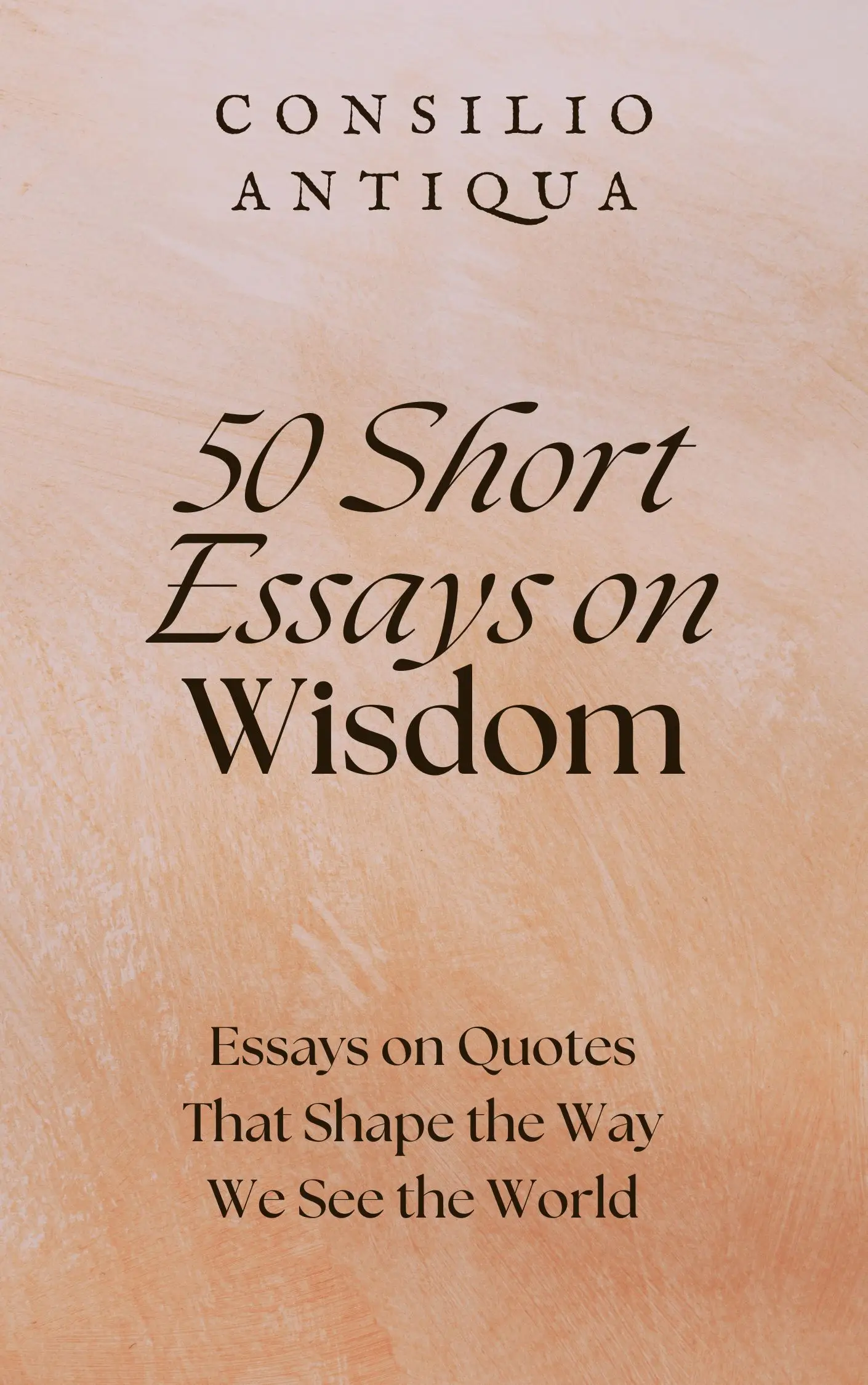
50 Short Essays on Wisdom | The Weight of Knowing
The Weight of Knowing
"Knowledge is power." - Francis Bacon
Elara, a young woman in a remote village, learned to read from a tattered book found in the ruins of an old library. This knowledge, a fragile seed of literacy, blossomed into a life beyond the confines of her village, a life of advocacy and empowerment. Contrast this with Silas, a man steeped in misinformation, his mind a fertile ground for prejudice and distrust, his life a barren landscape of missed opportunities.
Francis Bacon's assertion, "Knowledge is power," resonates across centuries, a simple yet profound truth that has shaped civilizations and individual destinies. But the nature of this power, its ethical implications, and its responsible application remain complex and ever-evolving questions.
Knowledge truly is power, but its potency lies not merely in its acquisition, but in its ethical and responsible deployment. The weight of knowing demands a conscious engagement with its implications, shaping our choices and actions in a world increasingly saturated with information.
The concept of knowledge as power finds its roots in ancient civilizations. The libraries of Alexandria, repositories of vast knowledge, served as centers of power and influence. The Renaissance witnessed a rediscovery of classical learning, fueling intellectual and artistic revolutions. The Enlightenment, with its emphasis on reason and empirical knowledge, further solidified the link between knowledge and societal progress. Thinkers like Immanuel Kant emphasized the importance of critical thinking and the pursuit of truth as pathways to freedom and autonomy.
Throughout history, access to knowledge has often been a marker of social stratification. Control over information, whether through religious dogma, political censorship, or economic inequality, has been a tool for maintaining power structures. Yet, the pursuit of knowledge, the relentless questioning of established norms, has consistently been a catalyst for social change and progress. The printing press, the internet – each a democratizing force, expanding access to information and challenging entrenched power dynamics.
The power of knowledge is multifaceted. It grants intellectual power – the ability to understand complex systems, to solve problems, to innovate. It bestows social power – the capacity to influence opinions, to shape narratives, to build communities. It yields economic power – the potential to create wealth, to secure opportunities, to improve livelihoods. And, perhaps most profoundly, it offers spiritual power – the capacity for self-discovery, for empathy, for a deeper understanding of our place in the universe.
However, with this power comes a profound responsibility. Knowledge, untempered by ethical considerations, can be wielded as a weapon, perpetuating injustice and inequality. Misinformation, intentionally or unintentionally spread, can erode trust, polarize societies, and undermine democratic processes. The weight of knowing demands a commitment to critical thinking, to fact-checking, to responsible information sharing. It necessitates a humility that acknowledges the limits of our understanding and a willingness to engage with diverse perspectives.
In our digital age, the flow of information is a torrent, a relentless deluge of data. The internet, a double-edged sword, offers unprecedented access to knowledge, yet it also amplifies the spread of misinformation and propaganda. The power of algorithms, shaping our information feeds and influencing our perceptions, presents a new challenge to critical thinking and media literacy. We are bombarded with carefully curated narratives, often designed to manipulate our emotions and beliefs.
Navigating this complex information landscape requires discernment, skepticism, and a commitment to seeking diverse sources. It demands a willingness to question our own biases and to engage in thoughtful dialogue with those who hold differing views. The responsible application of knowledge in the digital age necessitates a constant vigilance, a commitment to truth-seeking, and a deep understanding of the ethical implications of our actions in the digital sphere.
Consider your own relationship with knowledge. What sources do you trust? How do you evaluate information? What biases might be shaping your understanding of the world? What knowledge do you possess that could empower you to make a positive impact on your community or the world? What ethical considerations guide your use of information?
The journey of acquiring knowledge is a lifelong pursuit, a continuous process of learning, unlearning, and relearning. Embrace the weight of knowing, the responsibility that comes with understanding, and strive to use your knowledge to build a more just, equitable, and compassionate world. The power of knowledge is not a privilege to be hoarded, but a gift to be shared, a responsibility to be embraced.
Knowledge, undeniably, is power. But true power resides not in the mere accumulation of facts, but in the conscious and ethical application of that knowledge. Let us strive to wield this power responsibly, to illuminate rather than obscure, to empower rather than control, to build a future shaped by wisdom, empathy, and a deep respect for the truth.
